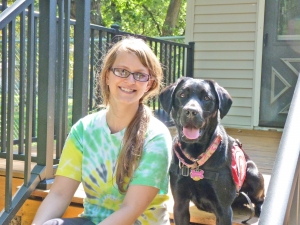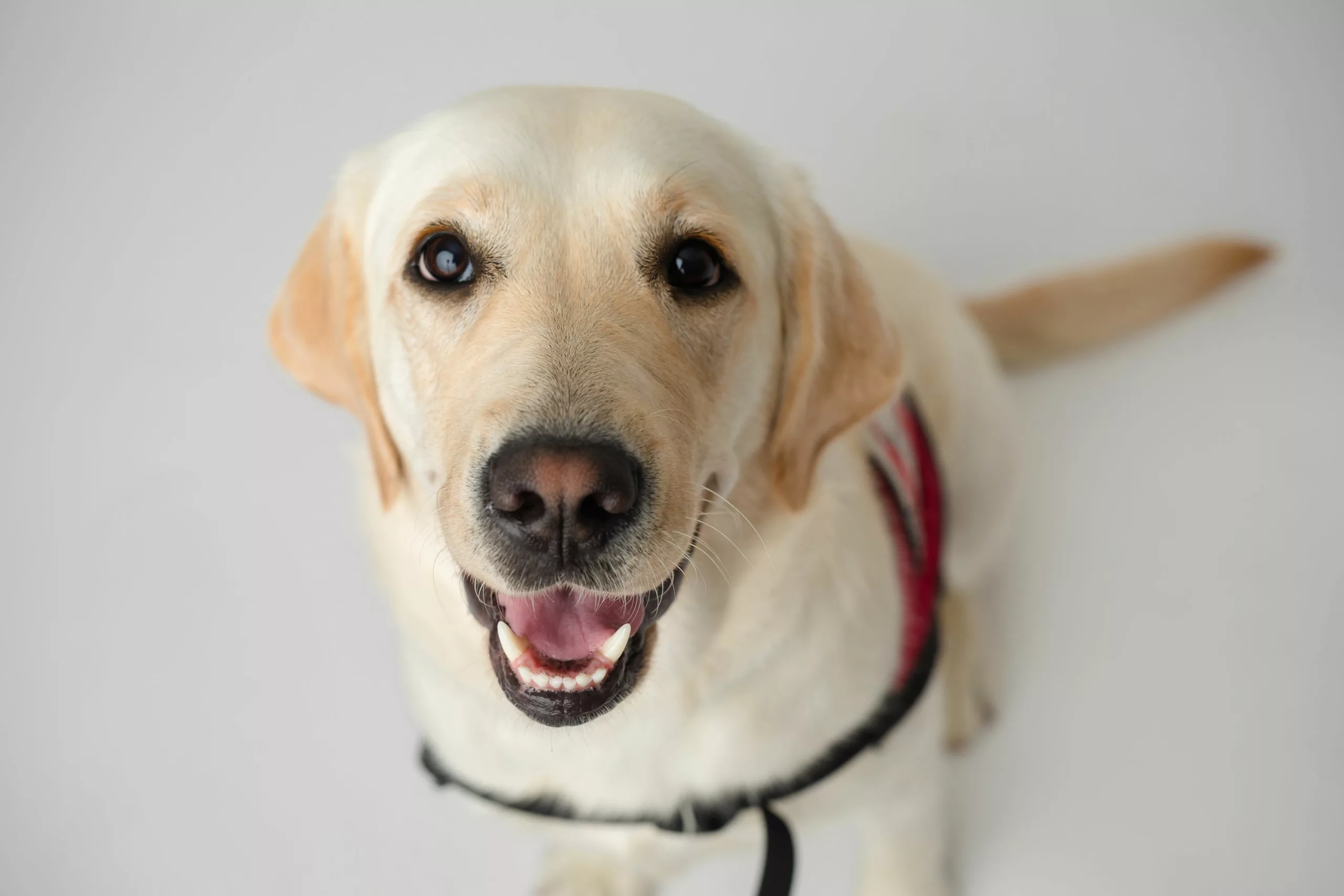 Amanda Mollner & Mobility Assist Dog Phyllis
Amanda Mollner & Mobility Assist Dog Phyllis
Age 18 is a magic number. It represents freedom, independence and the forging of one’s own path. It’s a time in someone’s life when the world begins to open up with a wide array of possibilities. But for Amanda Mollner of Woodbury, Minn., she found her world closing in.
At age 18, Amanda began having confusing and disturbing episodes of dizziness. Sometimes she merely felt off-balance. Other times she felt as if she were spinning, while in fact, she was standing still. There were incidents when the ringing in her ears was so loud she couldn’t hear.
“The disease is in my ears,” Amanda says. “But it’s amazing how it can affect my entire body as far as the loss of mobility. I fall frequently and will drop things a lot.”
Amanda has Meniere’s disease. It’s a rare disorder of the inner ear that causes spontaneous episodes of vertigo, fluctuating hearing loss and a ringing, or pressure, in the ears. The cause is unknown, but the consequences are enormous. From limited motor skills to difficulty walking, she is not able to accomplish the tasks she needs to each day.
“Basically, I don’t leave home unless I have another person with me and I rarely drive,” Amanda says. “The disease has prevented me from having gainful employment outside of the home and I’ve lost friends and relationships because I can’t go out very much.”
For nine years, Amanda did her best to cope with the disease and live an independent life. But after three ear surgeries and complications that left her hospitalized, Amanda began looking for another solution. She found Can Do Canines.
Within a year of receiving her application, Amanda was paired with a two-year-old black Labrador retriever named Phyllis. As a Mobility Assist Dog, Phyllis was specially trained to help Amanda by fetching the phone, acting as brace when she gets up and to retrieve a cane which Amanda uses during episodes. The four-legged assistant also helps by opening doors and drawers and by picking up items that Amanda drops.
While Phyllis has only been in Amanda’s life for a couple of months, Amanda exclaims, “It seems like she’s always been here! She’s definitely part of the family, adored by all and has made a significant difference for everyone, including my family and fiancée.”
During an episode Amanda often needs help bending to get items. In fact, bending over can sometimes trigger an episode. But now that Phyllis is around, Amanda is finding that she’s not experiencing as many vertigo attacks as she did in the past because Phyllis can retrieve things that Amanda may have dropped.
“Having her around has definitely alleviated some of those fast-onset, positional attacks,” Amanda says.
With Phyllis by her side, Amanda says she feels more secure and safe, both being out on her own and in her home. She says this has made her ready to restart her life and pursue the independent life she imagined nine years ago.
“When you have a dog you know that they view life as a wonder each day. Phyllis really gives me a reason to get up every day,” Amanda says. “I am forever grateful and indebted to all those who have helped this beautiful little soul become part of my life.”
Thank you to all those who made this partnership possible:
Puppy Raiser—Dora Schroeder
Long-term Foster Homes—Sue Forsberg & Doug Anderson; The Inmate Handlers at the Minnesota Correctional Facility at Faribault
Name-A-Puppy Donor—Nancy Chalmers





